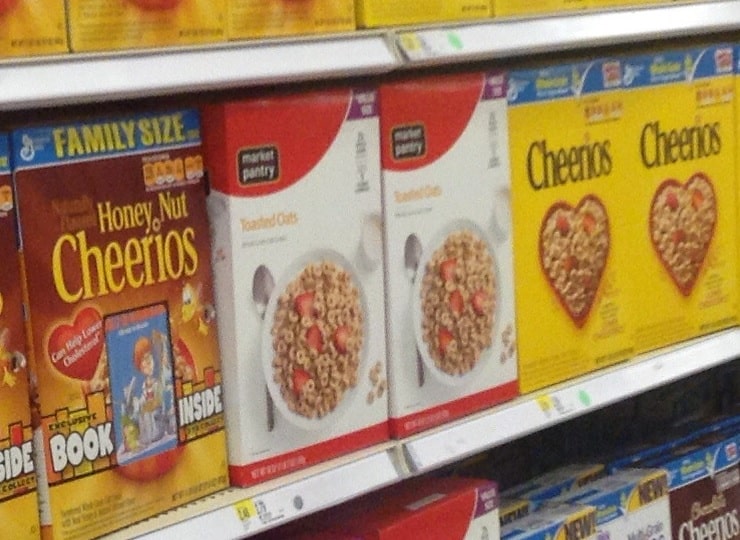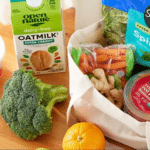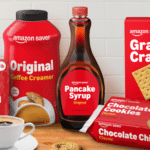
You’ve likely seen the reports and surveys and studies, and if you haven’t, sheer common sense could confirm their findings – as grocery prices go up, more shoppers are switching to less-expensive store brands from pricier brand names.
Or are they?
At least a half dozen brand executives in recent weeks have claimed they just aren’t seeing it. So even though some sales figures show an accelerating switch to private label products, these execs don’t seem the least bit troubled.
“We asked consumers about their mechanisms for coping with higher pricing. Trading down to private label and store brands was the item that had the biggest decline,” McCormick & Company CEO Lawrence Kurzius told investors a few weeks ago. With the help of newly-introduced McCormick product lines, “consumers are trading up from private label,” Chief Operating Officer Brendan Foley added.
Contrast that with a recent report from the market research firm Numerator, which declared that “private label is poised to make a comeback in 2023.” In the three months ending in December 2022, Numerator found that private label product sales accounted for 18% of all grocery spending, up about a third of a percentage point from the same time last year. 35% of shoppers surveyed said they purchase private label products to save money, and 28% said a product’s price is more important than a brand name.
“However,” Numerator cautioned, “positive sentiment towards private label quality has declined by five percentage points over the past two years.”
And that’s where brand executives say they have the advantage.
Colgate-Palmolive says its products are worth paying for, over their private-label counterparts. “The importance of trust in our categories helps keep private label penetration relatively low,” CEO Noel Wallace told investors in his company.
Consumers are also “looking for superior value, not necessarily the lowest price,” Clorox CEO Linda Rendle told investors. In a company survey, she said, “76% of consumers continue to feel that our brands are the best value and they’re voting for them in store.” So even though Clorox has raised prices several times over the past year, “we’re not seeing any meaningful trade down in our categories to private label,” Rendle said. “People want to stay with a Clorox Company-branded product.”
It’s not just trust and superiority and brand loyalty that’s preventing shoppers from straying, though. In some cases, increased promotions and deals are helping to entice wayward brand buyers back. “We continue to selectively increase trade promotions, which are expected to be up in 2023 versus 2022,” Reynolds Consumer Products CEO Lance Mitchell told investors. That, he said, is helping to close the gap between Reynolds’ brand name products and its private label competition.
In addition, “consumers’ appreciation of Reynolds Wrap performance advantages by comparison to private label foil” doesn’t hurt either. As a result, Mitchell said, “private label share is down in foil. It’s down in food bags. It’s down in slow cooker liner and oven bags… we’ve seen some trade down in some channels to lower pack sizes, but not a shift from brand to private label.”
Shoppers also appear to prefer brand-name batteries, according to Energizer. “Private label, particularly in the battery category, is basically flat,” Energizer CEO Mark LaVigne said. “At the end of the day,” particularly over the holiday period, batteries “are an essential category to consumers,” LaVigne said – and consumers are willing to stick with brands that they trust.
So does all of this mean Numerator’s stats can’t be believed? Or does every CEO think their brand is the single exception to the apparently growing trend toward private label purchases?
It depends, Numerator’s findings show. Among the categories seeing the most private label growth in the most recent quarter are canned vegetables, paper products, shampoo, vitamins, diapers and dog food. In many cases, shoppers in these categories tend to think one brand is as good as another, so whichever has the lowest price is most likely to end up in their cart.
“If you look at private label by category, you can see that in certain categories, they are making progress. Those categories almost always tend to be categories that are more highly commoditized,” ConAgra CEO Sean Connolly said last month. When one product “is a lot cheaper than the other, the switching costs are lower. It’s easier to make the trade down.”
So it’s no wonder many shoppers are choosing a cheaper bottle of vitamins or can of veggies if what’s inside appears to be the same as the name brands. In categories where ConAgra focuses, however, “things like frozen, our snacks categories,” Connolly said, there’s “very little private label alternative, and that’s one of the reasons we continue to thrive.”
Despite brands’ optimism, retailers whose private label products compete with the big brands aren’t ready to concede defeat, or admit that their products are somehow less desirable or of lesser quality. “Somebody asked us the question recently, are you seeing some trade down to private label?” Costco Chief Financial Officer Richard Galanti told investors last month. “We, of course, corrected them and said, it’s a trade up.”
So as you look to trim your grocery budget, brands would likely caution that you get what you pay for. But private label brands are betting that once you try them, you just might get used to getting more for less.
Image source: JeepersMedia











I think it would be useful for private label brands, who believe their products are just as good, to run promotions offering their products for free when customers purchase the non-private label brand. This enables consumers to compare the two products. For example, customers could receive a free Stop & Shop Aluminum Foil 75 square feet when they buy a Reynolds Wrap Aluminum Foil 200 square feet. This approach would enable stores to target loyal brand users with shopping data and see if they can convert them. Using the shopping data already available to stores, it would be easy to identify loyal brand users and offer them this promotion.
Yes! Several chains like Publix, Giant and even Stop & Shop did this occasionally several years ago, but I haven’t seen much of this type of promotion lately. Now could be a good time to revive it.